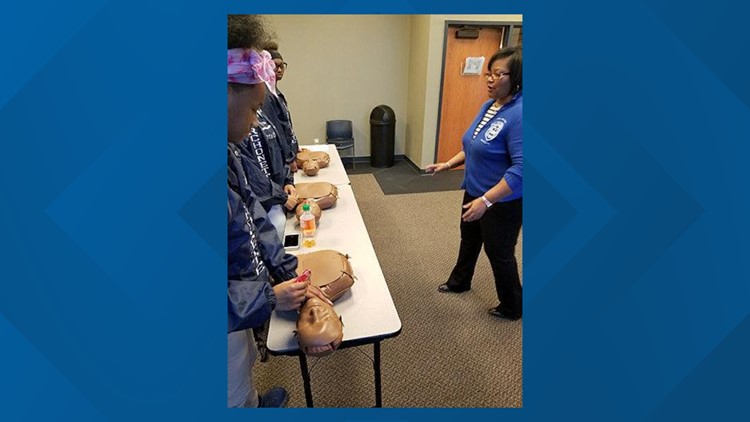ST. LOUIS — Like many African Americans, heart disease and high blood pressure has impacted the families of two local Black women who are now working to reduce its frequency in minority communities.
Devita Stallings, Ph.D., an associate professor of nursing at Saint Louis University’s Trudy Busch Valentine School of Nursing, recently received a $50,000 Institute of Clinical and Translational Sciences [ICTS] grant to improve African American health outcomes.
The ICTS is Washington University-led research consortium, of which Saint Louis University is a member, and Stallings is using it for community-based research and development of an app for self-management of hypertension among African American patients.
"We need more researchers doing this work to improve African Americans' quality of life and life expectancy," said Stallings, who lost her grandmother to a stroke when she was a child.
She said her grandmother’s death “now fuels [my] passion to educate the community about the dangers of uncontrolled blood pressure.”
Stallings’ is studying factors that influence self-management behaviors of minority populations with hypertension and heart failure. One way to reach underserved populations, she said, is through a telephone.
What makes her app unique is its use of “theory-based, culturally relevant, individualized, and evidence-based self-management interventions to improve hypertension disparities.”
She will employ an IT developer and a hypertension advisor panel consisting of nurses, doctors, nutritionists, community leaders, and African Americans living with hypertension.
Like Stallings, Chonda Nwamu, senior vice president, general counsel, and secretary for Ameren Corporation, has also dealt with heart disease in her family.
She is serving as the American Heart Association [AHA] Go Red For Women campaign chair
“I have a history of heart disease in my family, so my involvement in Go Red for Women is personal," Nwamu said.
“Beyond my personal connection, I am motivated by how the American Heart Association is actively working to address issues of health equity and access to health care, specifically among underserved communities and women of color.”
The annual campaign raises awareness about heart disease, the leading cause of death for women. It will culminate with the St. Louis Go Red for Women Luncheon on April 26, 2023.
Since its inception in 2004, Go Red for Women has had “a profound impact on women’s health,” according to Jennifer Jaeger, American Heart Association St. Louis executive director.
“As the trusted, passionate and relevant force to eradicate heart disease and stroke through the Go Red for Women movement, the American Heart Association remains steadfast and committed to meeting the comprehensive health needs of women – at every life stage.”
Jaeger added her organization is “thrilled to have Chonda’s experience, conviction and passion help to drive Go Red in St. Louis.”
“Together, we know that we will have a positive impact on the lives of women in our community and the families that depend on them,” she said.
The AHA raises funds from local and national Go Red for Women activities to support awareness, research, education, and community programs to benefit women.
Only 55% of women realize heart disease is the number one cause of death and less than half know what are considered healthy levels for cardiovascular risk factors like blood pressure and cholesterol, according to the AHA.
Department of Health and Human Services statistics illustrate the importance of Stallings research and the Go Red For Women campaign
African Americans are 30% more likely to die from heart disease than non-Hispanic whites.
Although African American adults are 40% more likely to have high blood pressure, they are less likely than non-Hispanic whites to have their blood pressure under control.
African American women are nearly 60% more likely to have high blood pressure, as compared to non-Hispanic white women.


